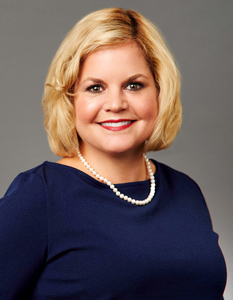Twenty years ago, my daughter, Annie, was diagnosed with autism. Throughout our journey, I have learned that not everyone is aware of or fully understands her disorder, and when they see or interact with us, they may not know what to do or say.

Amy Kelly, MBA, MNM
National Director of Family Engagement
Devereux Advanced Behavioral Health
Annie is now a thriving 22-year-old, and as I reflect on our experiences over the past two decades, below are just a few things I wish everyone knew about autism – and how to offer support.
- There’s no need to apologize: For some families, receiving an autism diagnosis can be overwhelming. Others may find relief in being able to put a name to it. When you discover my child has autism, don’t say, “I’m sorry.” Instead, ask, “How can I help?”
- Skip the comparisons: While you may want to try to relate, don’t compare your child with mine by saying, “All kids do that,” or “Every child can be difficult at times.” Unless you have a child with special or extra needs of their own, you will never fully understand what it’s like – and that’s OK.
- Please don’t stare: When my child has a tantrum or meltdown in public, please don’t stare. The tantrum or meltdown is not a reflection of my parenting skills, but rather, it reflects the diagnosis and the frustration my child lives with every day.
- Help make public restroom time easier: When my opposite-sex child needs to use a public restroom, understand that I don’t have any other choice but to take them to the restroom I would use. One way to help is by holding the door open and asking if I need someone to “stand guard” so we can have privacy.
- Be grateful for the ability to pack light: I wish parents of neurotypical children expressed a greater appreciation for how light they can travel. Regardless of the age of our child or adult with autism, often, we must carry a large bag filled with antibacterial wipes, hand sanitizer, waste bags, a change of clothes, snacks, beverages, a tablet, etc.
- Avoid scrutinizing screen time: Kindly keep your thoughts about screen time to yourself. For many parents, providing a child with an electronic device, such as a tablet, is the best way to keep them comfortable and in one place long enough to complete a supermarket trip with fewer meltdowns or enjoy a meal in public. These devices can also be effective teaching tools; for many, they are used as communication devices.
- Be mindful of what you can’t see: Autism is an invisible disability. Saying my child “looks normal” isn’t helpful and can make them feel bad about themselves.
- Watch your wording: Although well-intended, phrases like “You’re not given more than you can handle” aren’t helpful. As parents and caregivers of children with special needs, we appreciate your vote of confidence that we can handle our situations, but clichés don’t help.
- Talk to my child: Just because many of our children and adults may be nonspeaking or minimally verbal doesn’t mean they don’t understand what we are saying. Start by including them in a conversation, and we’ll help you with the rest.
- Be patient: Please know that families with disabilities are trying their best to juggle everyone’s needs, including their own. We are often our own harshest critics. Words of encouragement are always welcome and appreciated.
Remember, you don’t need any special skills to support families with autism. Just be kind, understanding, and accepting of others’ differences.
Amy Kelly, MBA, MNM, is the mother to Danny, Annie and Ryan. Annie is diagnosed with moderate to severe autism, verbal apraxia, intellectual and developmental disabilities, and general anxiety disorder. Amy is the National Director of Family Engagement for Devereux Advanced Behavioral Health, one of the nation’s oldest and largest nonprofit behavioral healthcare providers. She serves as a family representative on several local and national special needs boards in the community. In addition, she participates with other patients and families in efforts supported by the Autism Care Network. She serves on an executive committee for the American Academy of Pediatrics to assist children and adolescents with special needs and the importance of quality care.




